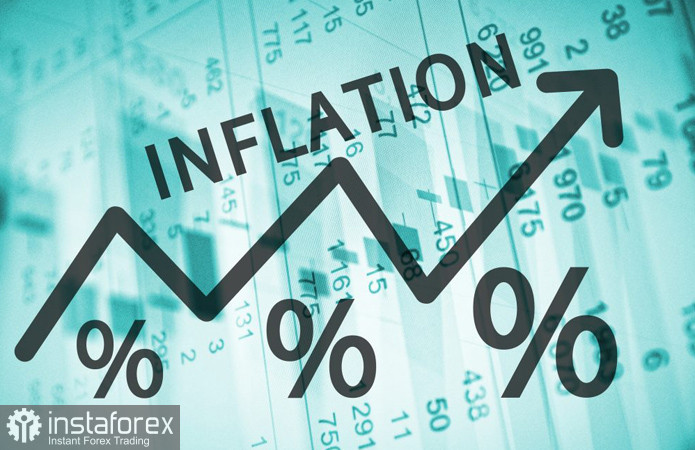
Last week, the U.S. inflation report was released, the last major report ahead of the Fed's November meeting. Thus, both members of the monetary committee and market participants can now analyze all the information received and draw conclusions. What conclusions the Fed has made, we will learn no earlier than November 3. But the market could already draw certain conclusions.
Nonfarm Payrolls failed, inflation began to rise again. What does this mean? This means that the labor market has not recovered and is recovering slowly at this time, and inflation is still outside the control of the Fed. However, the first factor requires the preservation of incentives, because if it is removed, then the pace of recovery may slow down even more. The second factor, on the contrary, requires an early tapering of QE, because a little more of it and the level of consumer prices can break a 30-year record.
American experts are already sounding the alarm, as 5.4% inflation does not mean that absolutely all goods and services in the United States have risen in price by 5%. For example, electricity and gasoline rose in price by more than 25%. Prices for cars increased by a quarter. Real estate is growing very strongly in price. That is, it is not for consumer goods that we can draw a conclusion about real inflation in the United States after the money supply has grown at least twice over the past year and a half. Naturally, money is depreciating, and the Fed will now have to bet either on curbing inflation or on further recovery of the labor market.
However, it is far from obvious which option the Fed will choose. Earlier, Jerome Powell, Christine Lagarde, and Andrew Bailey repeatedly stated that inflation is temporary, and prices are rising at a high rate only for a narrow group of goods and services, most of which are associated with the removal of COVID-19 restrictions. But, as practice shows, Powell may be mistaken in this. Several members of the monetary committee have repeatedly stated that the time has come to taper QE and the sooner the Fed does it, the better.
However, many experts also note that the tapering of QE may not cause the necessary effect to slow down price growth. Firstly, there will be an increase in prices for all categories of goods and services due to the growing cost of gasoline, gas, and electricity, and this will not stop the decrease in cash flows to the US economy.
Secondly, the tightening of monetary policy will mean an increase in the yield of treasury bonds and, accordingly, an increase in the cost of servicing the national debt, which is already almost $30 trillion.
And thirdly, the US dollar itself may begin to strengthen against its main competitors, which is absolutely unprofitable for the U.S. in the current situation, since American exports will lose their competitiveness in the international market. Consequently, the Fed is now at a fork in the road, where every road leads to no one knows where. Therefore, the decision that the Fed will make in November is absolutely not obvious.
 English
English 
 Русский
Русский Bahasa Indonesia
Bahasa Indonesia Bahasa Malay
Bahasa Malay ไทย
ไทย Español
Español Deutsch
Deutsch Български
Български Français
Français Tiếng Việt
Tiếng Việt 中文
中文 বাংলা
বাংলা हिन्दी
हिन्दी Čeština
Čeština Українська
Українська Română
Română

